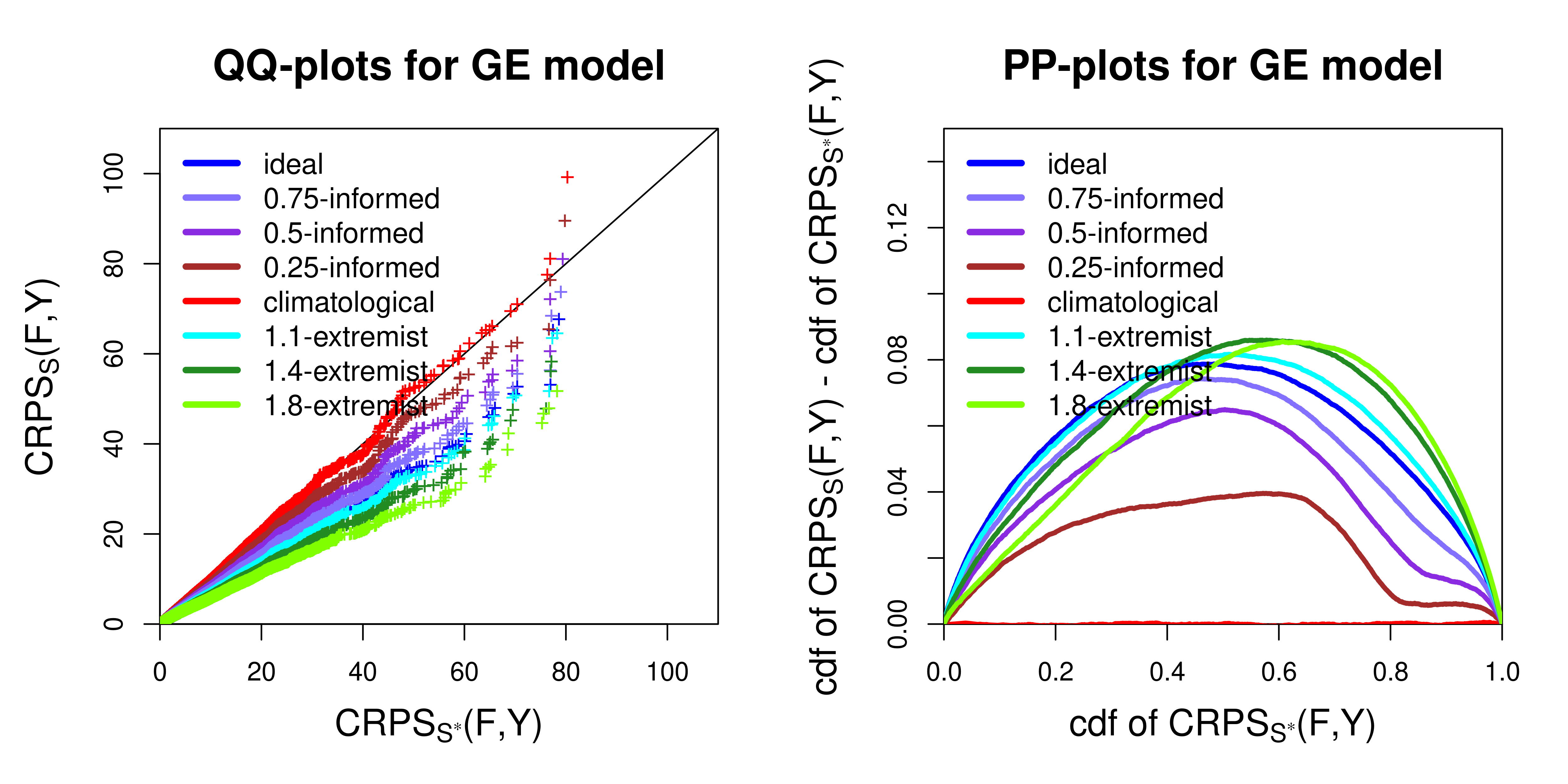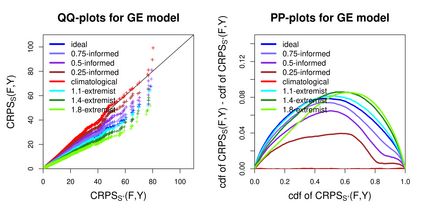Verification of probabilistic forecasts for extreme events has been a very active field of research, stirred by media and public opinions who naturally focus their attention on extreme events, and easily draw biased onclusions. In this context, classical verification methodologies tailored for extreme events, such as thresholded and weighted scoring rules, have undesirable properties that cannot be mitigated; the well-known Continuous Ranked Probability Score (CRPS) makes no exception. In this paper, we define a formal framework to assess the behavior of forecast evaluation procedures with respect to extreme events, that we use to point out that assessment based on the expectation of a proper score is not suitable for extremes. As an alternative, we propose to study the properties of the CRPS as a random variable using extreme value theory to address extreme events verification. To compare calibrated forecasts, an index is introduced that summarizes the ability of probabilistic forecasts to predict extremes. Its strengths and limitations are discussed using both theoretical arguments and simulations.
翻译:极端事件概率预测的核查是一个非常活跃的研究领域,受到媒体和公众舆论的推动,它们自然地将注意力集中在极端事件上,容易产生偏颇的排斥。在这方面,为极端事件量身定做的典型核查方法,如临界值和加权评分规则,具有无法减轻的不良性质;众所周知的连续分级概率评分(CRPS)没有例外。在本文件中,我们界定了评估极端事件预测评估程序行为的正式框架,我们用这个框架来指出,基于预期适当得分的评估不适合极端事件。作为一种替代办法,我们提议利用极端价值理论来研究CRPS作为随机变量的特性,处理极端事件核查问题。为了比较经过校准的预测,我们引入了一种指数,概括了预测极端情况的概率预测能力。我们用理论论点和模拟来讨论其长处和局限性。




